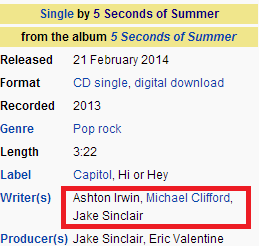The year is 2003. 'The Rock Show' and 'First Date' from Blink-182’s 'Take Off Your Pants and Jacket' album are all over UK radio like a particularly stubborn outbreak of contact dermatitis. With similar frequency, the first songs by Busted are pouring out of speakers in Topshops and Virgin Megastores across the country.
These are the dark days before Spotify, Bandcamp, Youtube et al made discovering new music a task as simple as changing your MSN Messenger screen name to a different Taking Back Sunday lyric; when it comes to discovering new music, Radio and Music TV are not so much instrumental (pun absolutely intended) but vital.
As the video for ‘Year 3000’ appears on the TV in my student house for what feels like the hundredth time this afternoon, I turn to my Libertines-worshipping, indie-girl housemate and whinge, âNot this crap again.â Her response?
“How can you like Blink 182 and hate Busted? I canât even tell the difference.”
Obviously, Iâm outraged. I launch into an indignant explanation of the obvious (to me) differences between the two bands, which as I recall revolves primarily around the volume of the guitars on their records and the number of toilet venues each respective band have played, to which my Pete Doherty-loving friend simply shrugs and says
“Well, they all look and sound the same to me.”
Fast forward a decade and Emma Garland at Noisey is essentially making the same argument with regards to 5 Second of Summer, albeit from the position of having been a member of the pop-punk tribe. Itâs a well-written and entertaining article which makes a considered and compelling argument – and one with which I wholeheartedly disagree.
Garlandâs essay starts out with an eloquent summary of the cultural shift which took place at the tail-end of the 90s, during which
The climate of pop culture had shifted towards an increasingly hypermediated age in which three losers wearing Dickies could be 5x platinum icons and the idea of Fred Durst dating Britney Spears was entirely plausible. All of a sudden, it was cool to be uncool.
On the face of if, itâs hard to disagree with that assertion because Blink-182 and Limp Bizkit were undeniably two of the biggest bands on the planet. It seems ridiculous to ascribe any kind of âoutsiderâ status to acts who were appearing on MTVâs ‘Cribs’ around the time that that channel began rendering the âMâ in its name entirely redundant by churning out vomit-and-anger-inducing “reality” TV, but is it really?
Back before the lines between the various tribes of youth culture were irreversibly blurred by high-speed broadband, American Apparel and ‘American Idiot’, there really was a huge and – as far as we were concerned – important difference between the kids whoâd pollute the Sixth-Form common room CD player with ‘100% UK Garage’every lunchtime and those of us who listened to “real” music. In objective terms, of course, the difference between our cultural choices was as symbolic as the differences between the bonuses of the various Sony execs who profited from the 2009 âRage Against the X-Factorâ campaign. Â We were being good little consumers and simply buying into different cogs of the same corporate machine.









